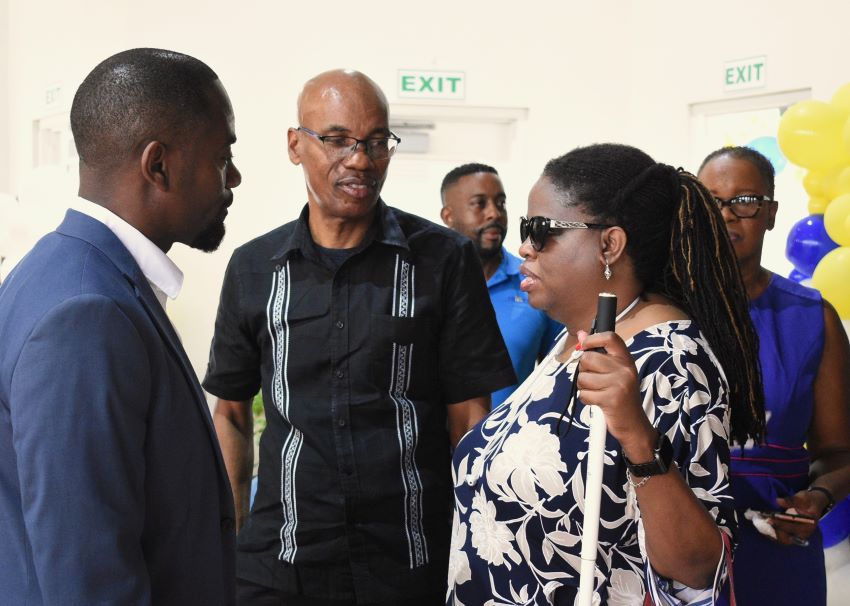
Persons with disabilities should not only be prioritised in matters that affect them but they should have a seat at the table.
This is the assertion of Minister of People Empowerment and Elder Affairs, Kirk Humphrey, who was speaking at the opening of ICT workshops for Persons with Disabilities (PWDs), at the Derrick Smith School and Vocational Centre, this morning.
The workshops are part of activities for ICT Week 2023, which concludes today, and was hosted by the Government of Barbados, the Caribbean Telecommunications Union and the Global Government Forum, UK.
The sessions were held for persons who are physically challenged, blind and deaf, from ages 11 and up.
Minister Humphrey explained that Persons with Disabilities should be included in all conversations, whether they pertained to education, the elderly, transportation or health. He said the “tragedy” of Caribbean development is that countries have not been as intentional as they should be in putting resources into the hands of the people who need them the most.
“We have been able to achieve a lot but we need to do more. In all things we have to prioritise persons with disabilities … at least if all we do is to have them at the table when decisions are being made. It means we will then develop policies across the board in a way that is much more integrated, holistic and better for the country and for the people.
“We also need to do it in our technology development so that if you are going to be innovative in Barbados, you cannot then think you are going to develop an app that is going to change the world and then, as an afterthought say, how will this work for Persons with Disabilities? It means that we have to include Persons with Disabilities from the beginning,” said Mr. Humphrey.
He added that everyone was just “a second” away from a disability, particularly with the rising level of non-communicable diseases, and should consider those who are living with disabilities by listening to them and being more caring. This, he pointed out, included not parking in spots designated for those with disabilities.
President of the Barbados Association for the Disabled, Kerry-Ann Ifill, encouraged participants to embrace the workshops, stating that they would help to “bridge the digital divide”.
“I take this opportunity to encourage you, not only to learn, not only to grasp, not only to be exposed to but to also understand why we need to advocate louder, longer, harder. We need to acknowledge work that is being done for us and, most importantly, with us to bridge the divide. But we also need to encourage the Government, the private sector and civil society; all the stakeholders that have a part to play in today’s society. I encourage you today to embrace the technology, to acknowledge its importance and to be prepared to go forth and spread the good news to all that inclusivity is here to stay,” she said.
Director of Stakeholder Engagement with the CTU, Trevor Prevatt, explained that the workshops were conceptualised to demonstrate the power of ICTs to change the lives of those with disabilities, by making them more independent. He disclosed that 32 similar workshops have been held in nine of the CTU member states.
Mr. Prevatt further noted that hosting the digital workshops in Barbados was fitting “given its commitment to inclusivity”. He added that the CTU was hoping to develop workshops for persons with cognitive disabilities in the future.
